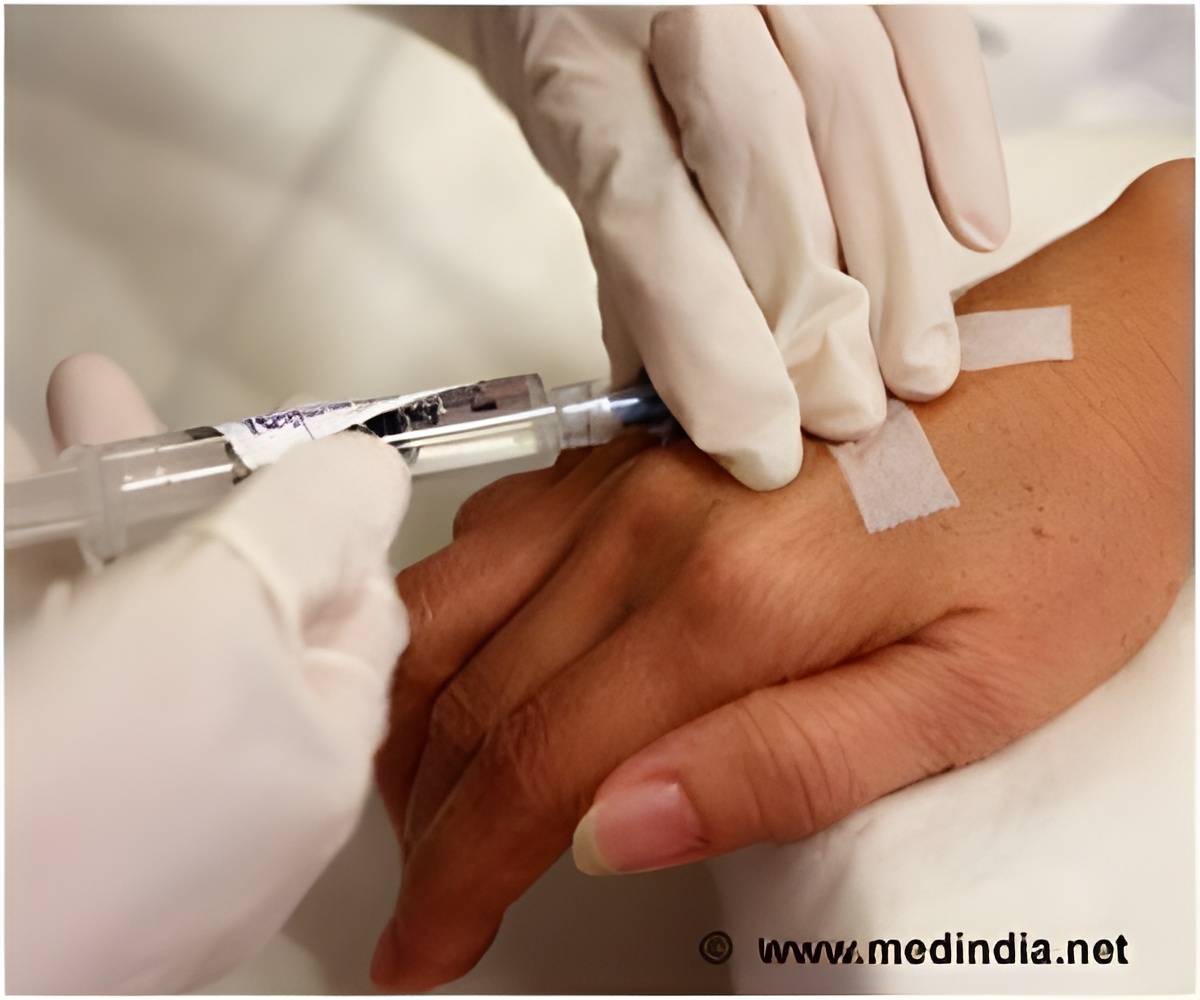Fiver cancer patients experienced complete relief from their disease after being injected by their own immune cells that were genetically modified with an extra cancer-fighting gene.

Results of the early-stage trial, published in the journal Science Translational Medicine, demonstrate that it may be possible to use the gene-therapy technique to control cancers in relapsed patients so that they can undergo a bone-marrow transplant with a donor's blood stem cells, leading to a complete cure, doctors treating the patients said.
The patients had initially undergone chemotherapy to control their cancers but, as so often happens, the disease returned and could not be treated further by the same approach because the cancerous cells had developed resistance to the drugs.
Scientists at the Memorial Sloan-Kettering Cancer Centre in New York developed a form of targeted immunotherapy based on inserting an additional gene into the patients' white blood cells that enabled these cells to identify and destroy any cancerous cells circulating in the bloodstream.
"This ability of our approach to achieve complete remissions in all of these very sick patients is what makes these findings so remarkable and this novel therapy so promising," the paper quoted Renier Brentjens of the cancer centre and lead author of the study as saying.
Following the targeted immunotherapy, four of the five patients underwent a bone marrow transplant and to date three of these four have remained in remission for between five and 24 months - with one patient dying from complications unrelated to the cancer therapy.
Advertisement
But he noted that the effectiveness of this targeted immunotherapy need to be examined in additional patients before it could potentially become a standard treatment for patients with relapsed B-cell acute lymphoblastic leukaemia.
Advertisement









